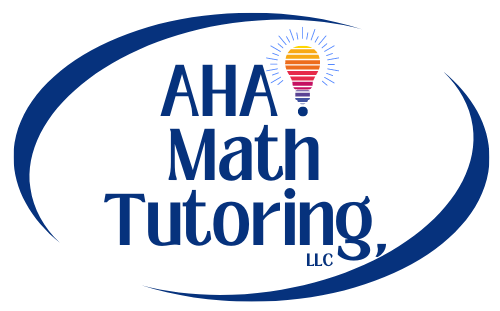Understanding Your Child's Math Progress Before Summer Break
As we come closer to the end of the school year, it’s important for parents to understand their child’s progress in math. These three key topics provide valuable insights that can contribute to a smoother transition for your child into the next school year.


Growth Mindset
- How does your child feel about their math ability?
- Do they see mistakes as opportunities for growth?
- Do they show resilience when they are challenged?
- Do they understand that effort and practice will have a positive effect on their math skills and understanding?
Problem-Solving
- How does your child do when faced with word problems or math tasks that require critical thinking?
- Are they able to use a variety of strategies when problem-solving?
- Do they use estimation and reasoning when solving problems?
Gaps in Knowledge
Be aware of any holes or gaps in their understanding that have appeared during the year, especially with numeracy skills. In Middle School, it is important that students become fluent with adding, subtracting, multiplying, and dividing rational numbers (integers, fractions, and decimals) as these skills are used regularly within other math strands such as algebra, geometry, and statistics.
Building fluency with rational numbers is always a big focus throughout Middle School. This is approximately where students should be by the end of each grade level, but this can certainly vary from school to school depending on the standards they are following.
By the End of 5th Grade or Year 6 (UK)
Students should be able to:
- Add, subtract, multiply, and divide multi-digit whole numbers
- Add and subtract fractions and mixed numbers with unlike denominators
- Multiply fractions and mixed numbers
- Divide whole numbers and unit fractions (unit fraction = numerator of one)
- Add and subtract decimals up to the hundredths place
- Use the order of operations on problems involving positive whole numbers
By the End of 6th Grade or Year 7 (UK)
Students should be able to add, subtract, multiply, and divide:
- Multi-digit whole numbers
- Fractions and mixed numbers
- Decimals up to the hundredths place
- Use the order of operations on problems involving positive whole numbers, fractions, and decimals
By the End of 7th Grade or Year 8 (UK)
Students should be able to add, subtract, multiply, and divide:
- Integers (positive and negative whole numbers)
- Positive and Negative Fractions and mixed numbers
- Positive and Negative Decimals up to the hundredths place
- Use the order of operations with all rational numbers
Evaluate This School Year
Now that we’ve covered these three key areas, take a moment to consider the wealth of data available to you from the current school year:
- Insights gathered from parent-teacher conferences
- Correspondence such as emails from your child’s math teacher or tutor
- Grades and report card comments reflecting your child’s performance in math
- School-wide math assessment reports
- Direct conversations with your child regarding their math experiences
These sources provide valuable data to understand your child’s strengths and weaknesses in math. Armed with this knowledge, you can make informed decisions about whether additional math practice during the summer would benefit your child. Check with your school to see if they offer any summer math resources, such as math packets or courses. If your child needs targeted assistance in specific areas of math, consider engaging a tutor who can provide personalized support. While summer is a time for relaxation, incorporating occasional math practice can help ensure your child retains their knowledge and addresses any learning gaps before the new school year begins.
Now that we’ve explored these critical areas, use the wealth of information available from the current school year to empower your child’s math journey. With this understanding, you can guide them towards a summer that not only rejuvenates but also strengthens their mathematical foundation, paving the way for success in the upcoming school year.
Similar Posts
How to Support Your Child in Middle School Math
Middle school is a critical time for students, especially when it comes to subjects like math. As a parent, you want to help your child succeed, but it can be challenging to know when to step in and when to let them handle things on their own.
What a Successful Middle School Math Student Looks Like
Success in middle school math isn’t just about getting the right answers. It’s about developing strong habits, a positive mindset, and effective strategies that help students navigate the challenges of math learning.
Benefits of Doing Summer Math Programs
Discover how to help your middle schooler shift from dreading math to embracing it with these 4 simple tips. Explore strategies for cultivating a growth mindset, reducing math anxiety, and making math engaging and relevant.

About the Author
Crystal Paul
Let's Learn Together!
I’m on a mission to empower students to embrace challenges and cultivate a belief in themselves that they can learn and grow! If you’re ready to help your middle schooler rewrite the narrative around their math education, schedule a free 15-minute consultation to learn how virtual math tutoring can help.



